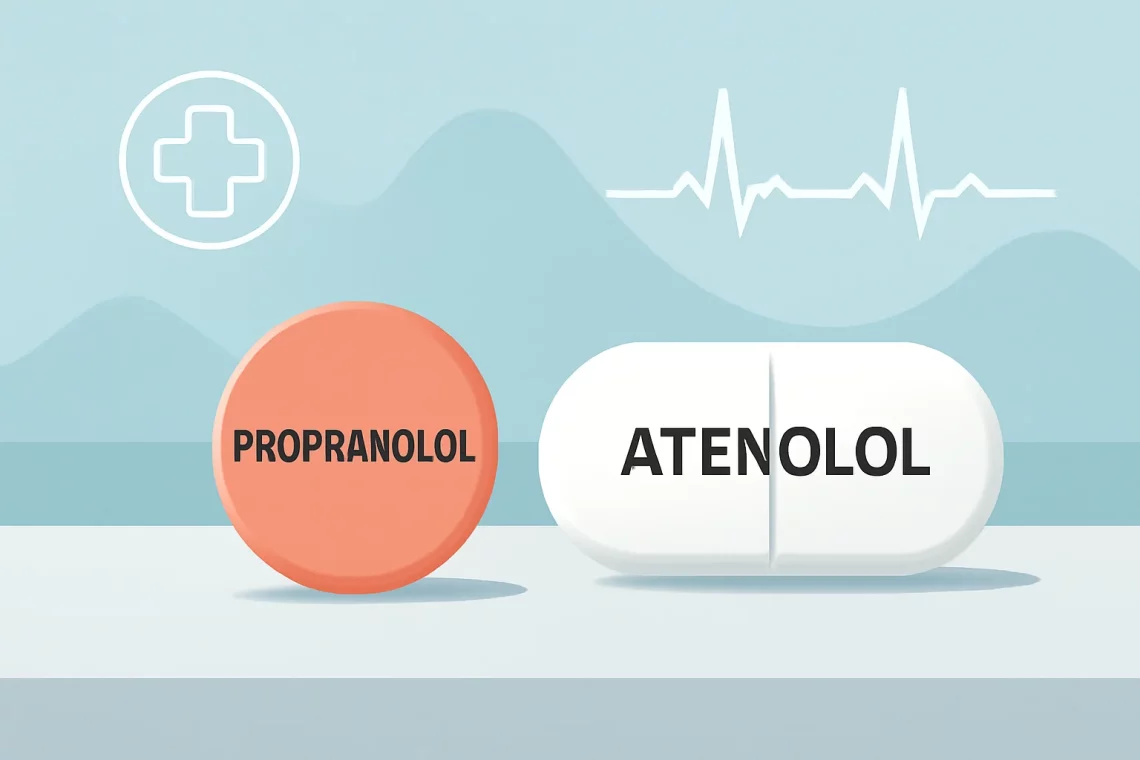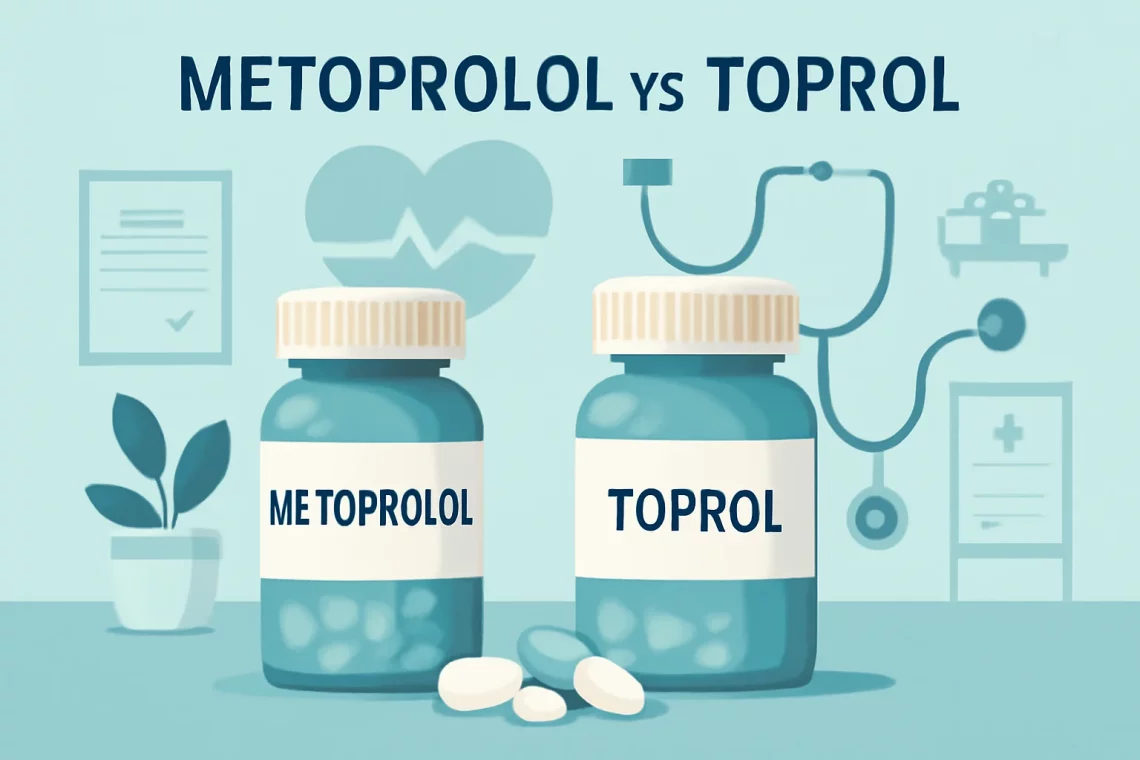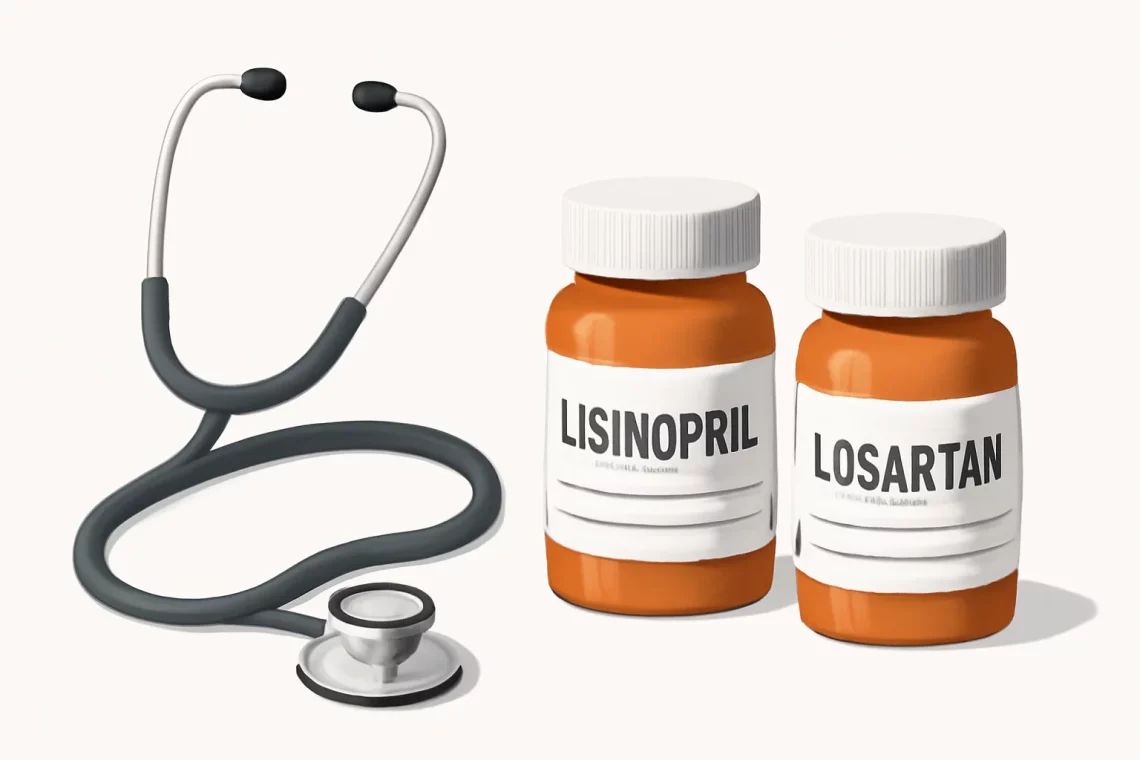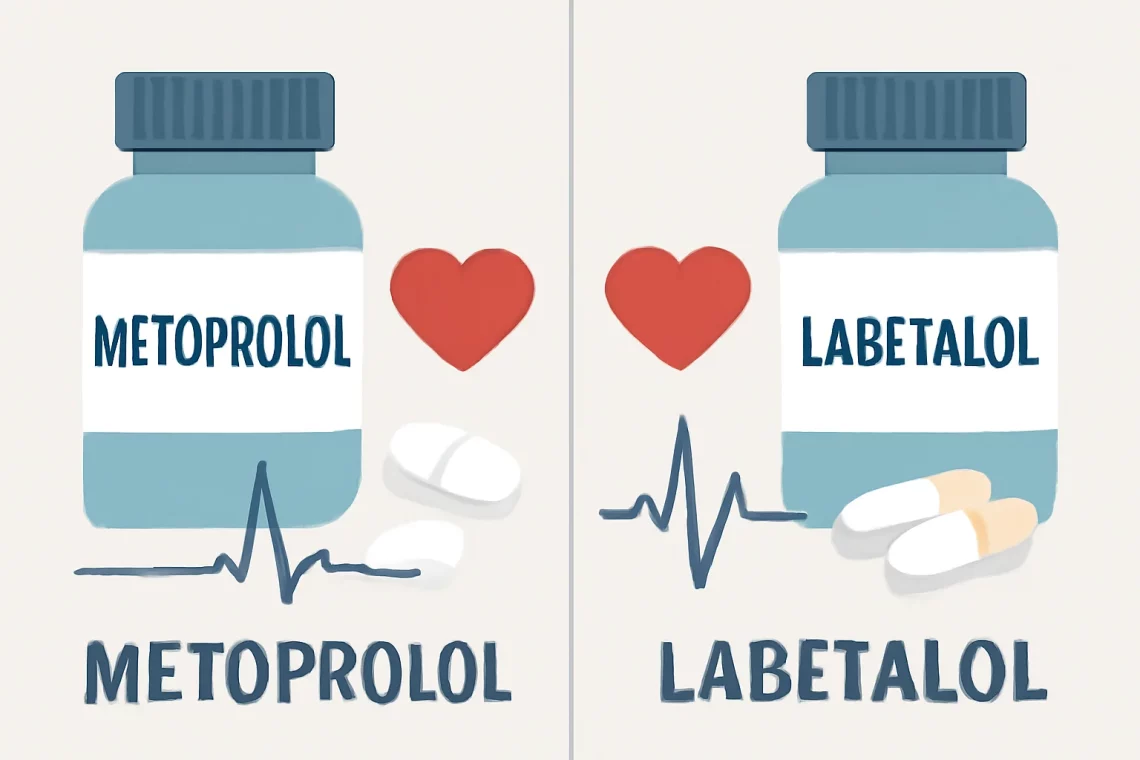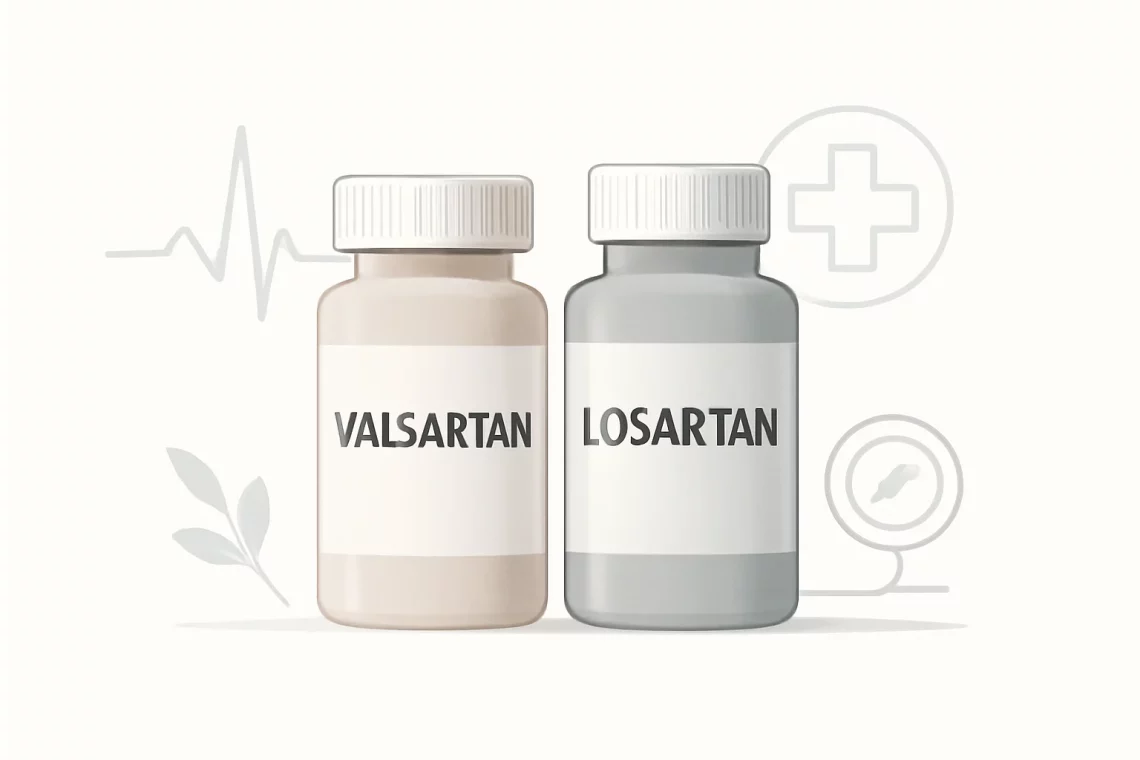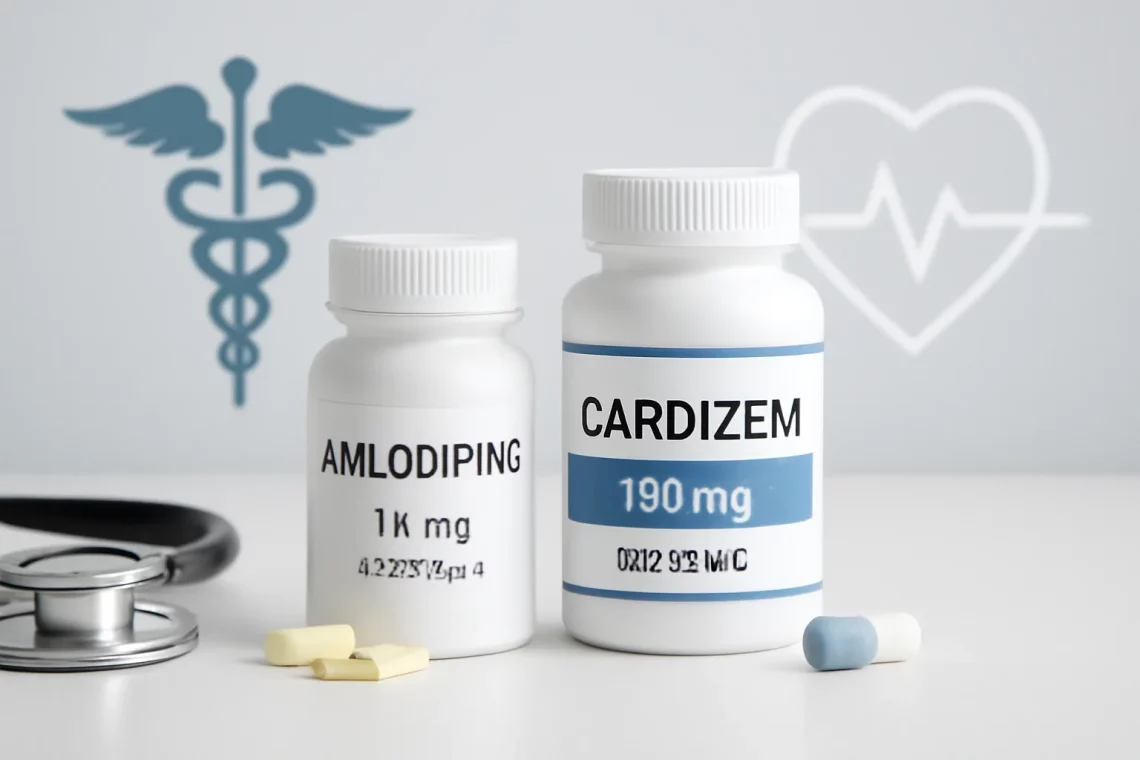-
Propranolol vs Atenolol: Which Beta-Blocker Is Right for You?
Propranolol and Atenolol are two widely prescribed medications that belong to the class of drugs known as beta-blockers. These medications are primarily used to manage various cardiovascular conditions, such as hypertension, angina, and arrhythmias. They can also be effective in treating other conditions, including anxiety and migraine prevention. Both drugs work by inhibiting the effects of adrenaline on the body’s beta receptors, which leads to a decrease in heart rate and blood pressure. Despite their similarities, Propranolol and Atenolol possess distinct pharmacological properties and clinical applications that can influence a physician’s choice of treatment. Understanding these differences is essential for patients and healthcare providers alike, as it can significantly impact…
-
Lisinopril vs Enalapril: Which Medication is Right for You?
High blood pressure, medically known as hypertension, is a prevalent condition that affects millions of individuals worldwide. Managing hypertension is crucial for reducing the risk of serious health issues such as heart disease, stroke, and kidney failure. Among the various treatment options available, two commonly prescribed medications are Lisinopril and Enalapril. Both belong to a class of drugs called angiotensin-converting enzyme (ACE) inhibitors, which work by relaxing blood vessels and lowering blood pressure. Understanding the differences and similarities between these two medications can help patients and healthcare providers make informed decisions about treatment options. While both Lisinopril and Enalapril serve the same primary purpose, they have unique characteristics, including varying…
-
Labetalol vs Methyldopa: Which is Better for Managing Hypertension?
Hypertension, commonly known as high blood pressure, is a significant global health concern that affects millions of individuals. It is often dubbed the “silent killer” due to its asymptomatic nature, which can lead to severe complications if left untreated. Effective management of hypertension is crucial to prevent cardiovascular diseases, stroke, and other life-threatening conditions. Among the various classes of antihypertensive medications available, labetalol and methyldopa have gained attention for their unique properties and applications in treating high blood pressure, particularly in specific populations such as pregnant women. Labetalol, a combined alpha and beta-blocker, has been widely used due to its dual mechanism of action, which effectively lowers blood pressure by…
-
Losartan vs Valsartan: Choosing the Right Medication for Hypertension
Losartan and Valsartan are two commonly prescribed medications that belong to a class of drugs known as angiotensin receptor blockers (ARBs). These medications are primarily used to manage hypertension and heart failure, providing significant benefits for those affected by these conditions. With rising rates of cardiovascular diseases globally, understanding the role and differences between these medications is increasingly important for patients and healthcare providers alike. Both Losartan and Valsartan function by blocking the action of a hormone called angiotensin II, which causes blood vessels to constrict. This action leads to lower blood pressure and reduced workload on the heart. Despite their similar mechanisms, there are nuances in their pharmacological profiles,…
-
Metoprolol vs Toprol: Understanding the Key Differences and Uses
Metoprolol and Toprol are two terms often used interchangeably in the world of cardiovascular medications. These medications belong to a class known as beta-blockers, which are primarily used to manage high blood pressure, heart rhythm disorders, and other heart-related conditions. Despite their similarities, it is crucial to understand that Metoprolol and Toprol, while closely related, are not exactly the same. Their differences can significantly impact how they are prescribed and how they function in the body. Beta-blockers like Metoprolol work by blocking the effects of adrenaline on the heart and blood vessels. This action leads to a decrease in heart rate and blood pressure, making it easier for the heart…
-
Lisinopril vs Losartan: Choosing the Right Medication for You
High blood pressure, also known as hypertension, is a prevalent health issue affecting millions of people worldwide. It often goes unnoticed, earning it the title of a “silent killer.” If left untreated, high blood pressure can lead to severe complications, including heart disease, stroke, and kidney failure. To combat this condition, healthcare professionals often prescribe medications that help regulate blood pressure levels. Among these medications, Lisinopril and Losartan are two commonly used drugs that belong to different classes but serve similar purposes. Lisinopril is an angiotensin-converting enzyme (ACE) inhibitor, whereas Losartan is classified as an angiotensin II receptor blocker (ARB). Despite their different mechanisms of action, both medications effectively lower…
-
Metoprolol vs Labetalol: Key Differences and Clinical Uses Explained
Metoprolol and labetalol are both beta-blockers, a class of medications widely used in the management of cardiovascular conditions. These drugs work by blocking the effects of adrenaline on the beta receptors in the heart, leading to reduced heart rate and blood pressure. While both medications serve similar purposes, they differ in their pharmacological profiles, indications, side effects, and mechanisms of action. Understanding these differences is crucial for healthcare providers and patients alike, as it can significantly impact treatment outcomes. Metoprolol is often prescribed for conditions such as hypertension, angina, and heart failure, while labetalol is frequently used for managing high blood pressure, particularly in acute settings. The choice between these…
-
Valsartan vs Losartan: Which Blood Pressure Medication is Right for You?
Valsartan and Losartan are two well-known medications primarily used to treat high blood pressure and other cardiovascular conditions. Both belong to a class of drugs called angiotensin II receptor antagonists, which work by blocking the action of a hormone that can cause blood vessels to constrict. This leads to a decrease in blood pressure and an overall improvement in heart health. While both medications share similar mechanisms and therapeutic benefits, they also possess distinct characteristics and differences that can influence a healthcare provider’s decision when prescribing them. As heart disease remains a leading cause of morbidity and mortality worldwide, understanding the nuances of such medications is crucial. Patients often find…
-
Valsartan vs Losartan: Which Blood Pressure Medication is Right for You?
High blood pressure, also known as hypertension, is a common health issue affecting millions of people worldwide. It often goes unnoticed as it typically does not present any symptoms, which is why it is often referred to as a “silent killer.” Managing hypertension is crucial as it can lead to serious complications such as heart disease, stroke, and kidney failure. To combat this condition, healthcare providers often prescribe medications known as antihypertensives. Among the various options available, two widely used medications are Valsartan and Losartan. Both belong to a class of drugs called angiotensin receptor blockers (ARBs) and are effective in lowering blood pressure by relaxing blood vessels. However, despite…
-
Amlodipine vs Cardizem: Comparing Two Common Blood Pressure Medications
Amlodipine and Cardizem are two commonly prescribed medications used to manage hypertension and certain types of angina. Both belong to a class of drugs known as calcium channel blockers, which work by relaxing the blood vessels to allow for easier blood flow. Over the years, these medications have gained popularity due to their effectiveness in controlling blood pressure and alleviating chest pain associated with heart conditions. While both Amlodipine and Cardizem serve similar purposes, they have distinct differences that can influence a doctor’s choice when prescribing them. Factors such as the patient’s medical history, specific health conditions, and potential side effects play a crucial role in determining which medication may…
